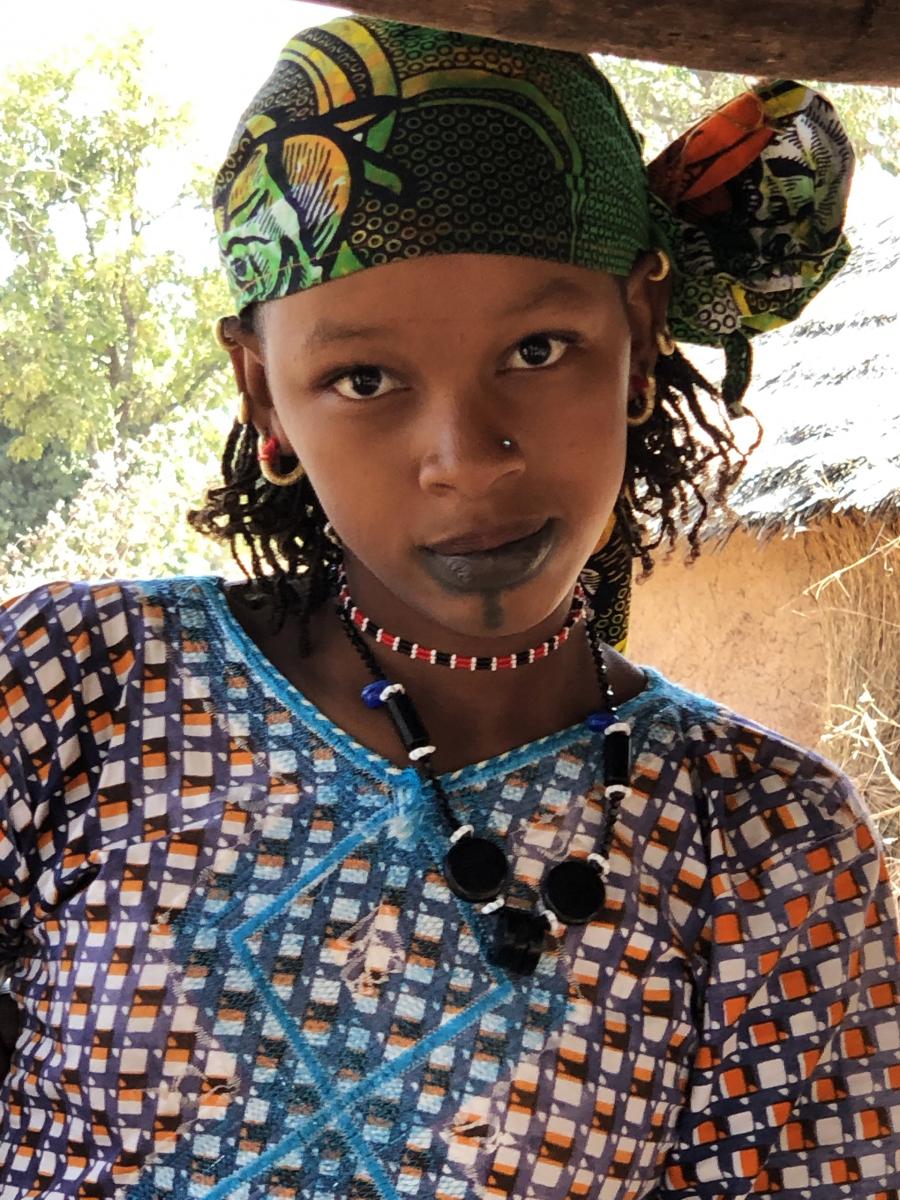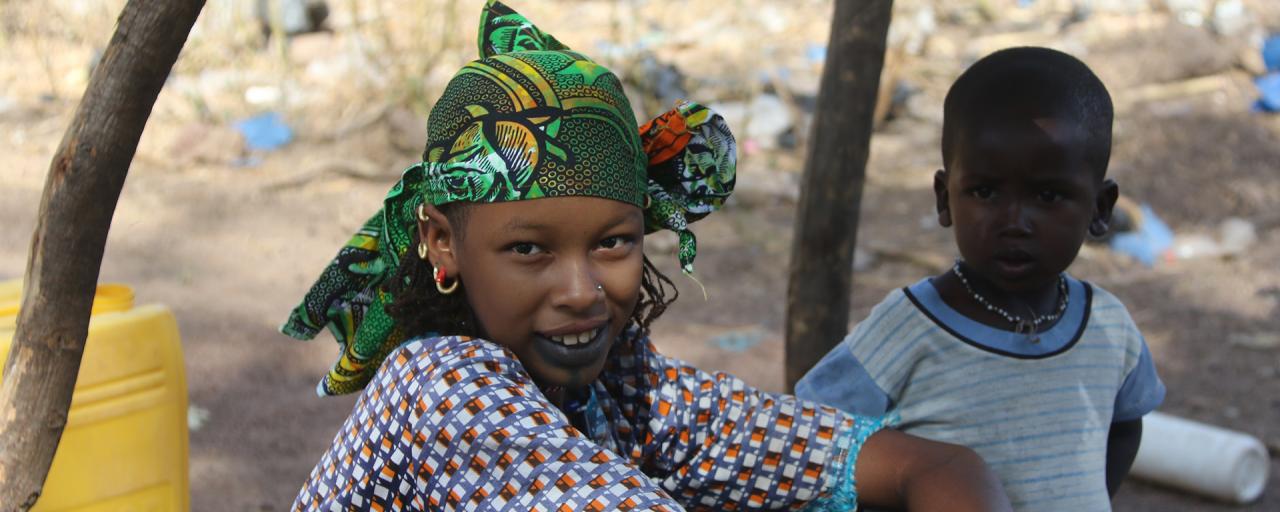Submitted by SafariADV on Sat, 2019-02-23
This morning we left Korhogo, in the Ivory Coast, we visited the blacksmiths village of Koni and the Senoufo village of Niofoin; our journey then continued to Boundiali, tonight we will sleep here.
First we check in at the hotel and go to lunch at the hotel restaurant; today is a hot day, fortunately it is a dry heat, but it makes itself felt.
After lunch we leave immediately, today we go to visit a Fulani village; we have already seen them in Ghana, we had visited their village and we had chatted with them, but we go back willingly, also because every village has a history of its own.
We go by car, but it is not very far from the hotel; we arrive and park.
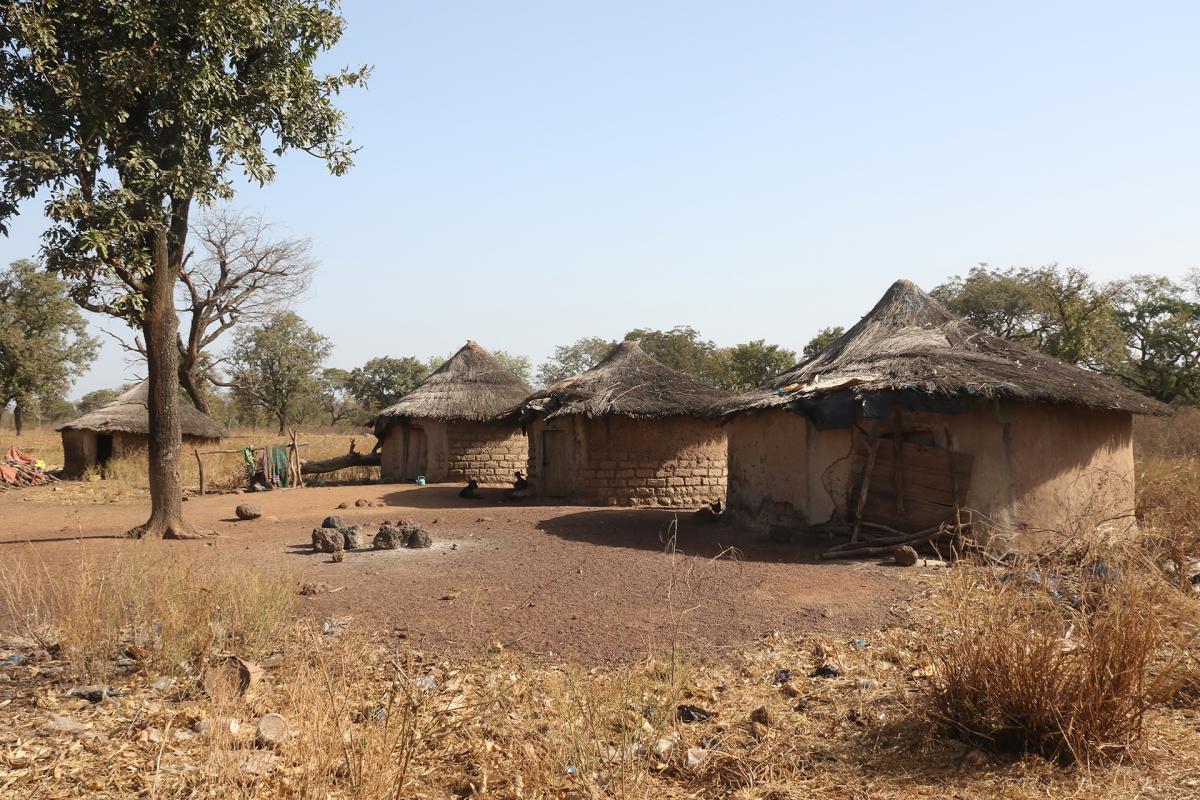
We have a bit of walking to do because the village is not collected but scattered, each group of huts belongs to one family and more families live in the village; in this village there are 4 families in all.
In the village there are almost all women, men are out with cattle, there is someone left in the village to protect women and children.
The Fulani are a nomadic population and live in different West African countries, even if they claim to come from the Arabian Peninsula; there is no evidence in this sense but they have different features from the Bantu, some say that descend from the Berbers, we must investigate more thoroughly.
In reality some Fulani have become permanent, or in any case remain in a place for even 20 or 30 years; they usually move in search of water and food for livestock; the Fulani, in fact, are mainly breeders.
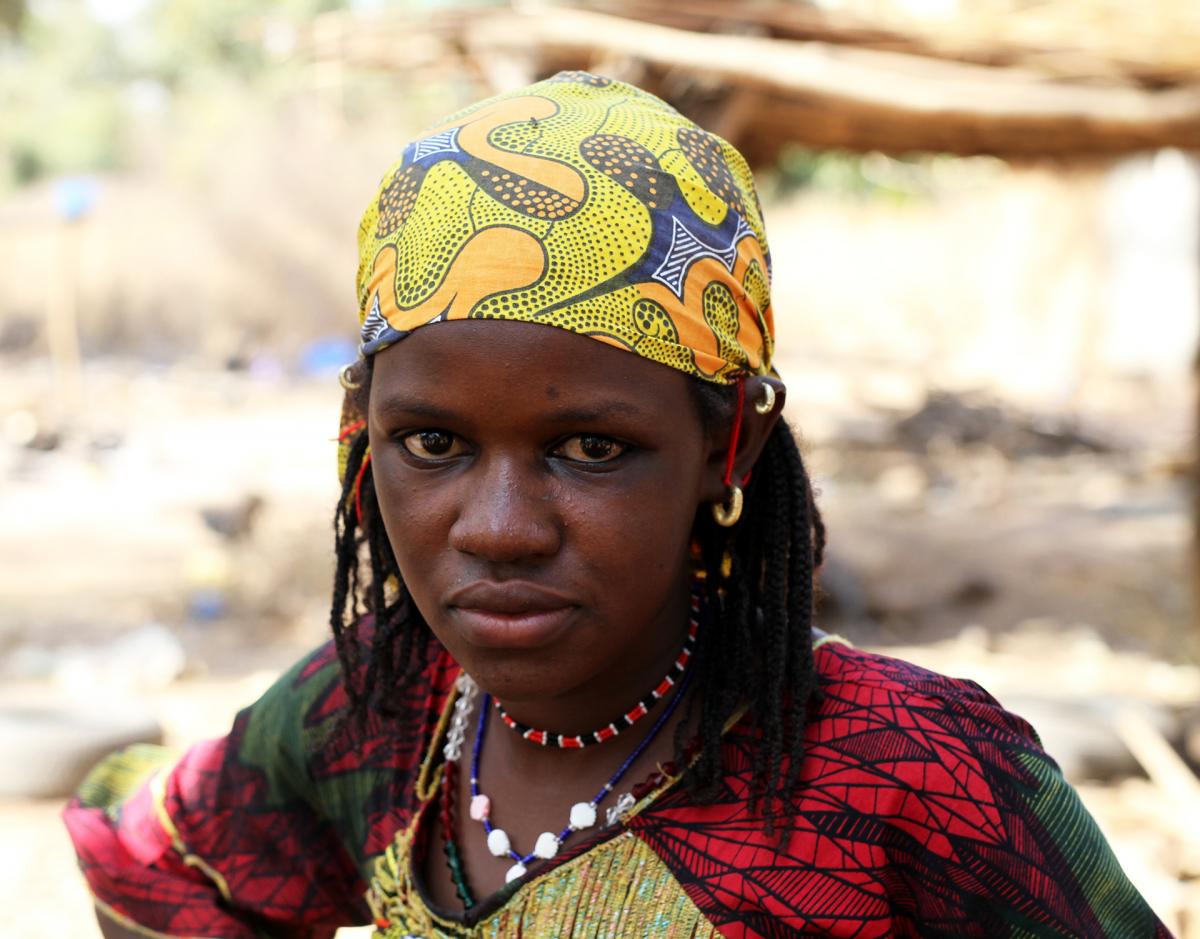
The Fulani are Muslims, but they also practice animism.
The Fulani women have a particular trick: they color the lower lip and the chin with a black henna, this habit does not have particular meanings, they simply do it for beauty; they also wear very colorful dresses and wear different jewels; some are really very beautiful, impossible not to take photographs of them.
Although Muslims are happy to be photographed and then look in the smartphone or in the camera viewer; to tell the truth initially some are very shy and a bit hesitant, then, when they see the photographs of others, they want to be photographed.
It takes us more than an hour to go around the village because the groups of houses, of various families, are far from each other.
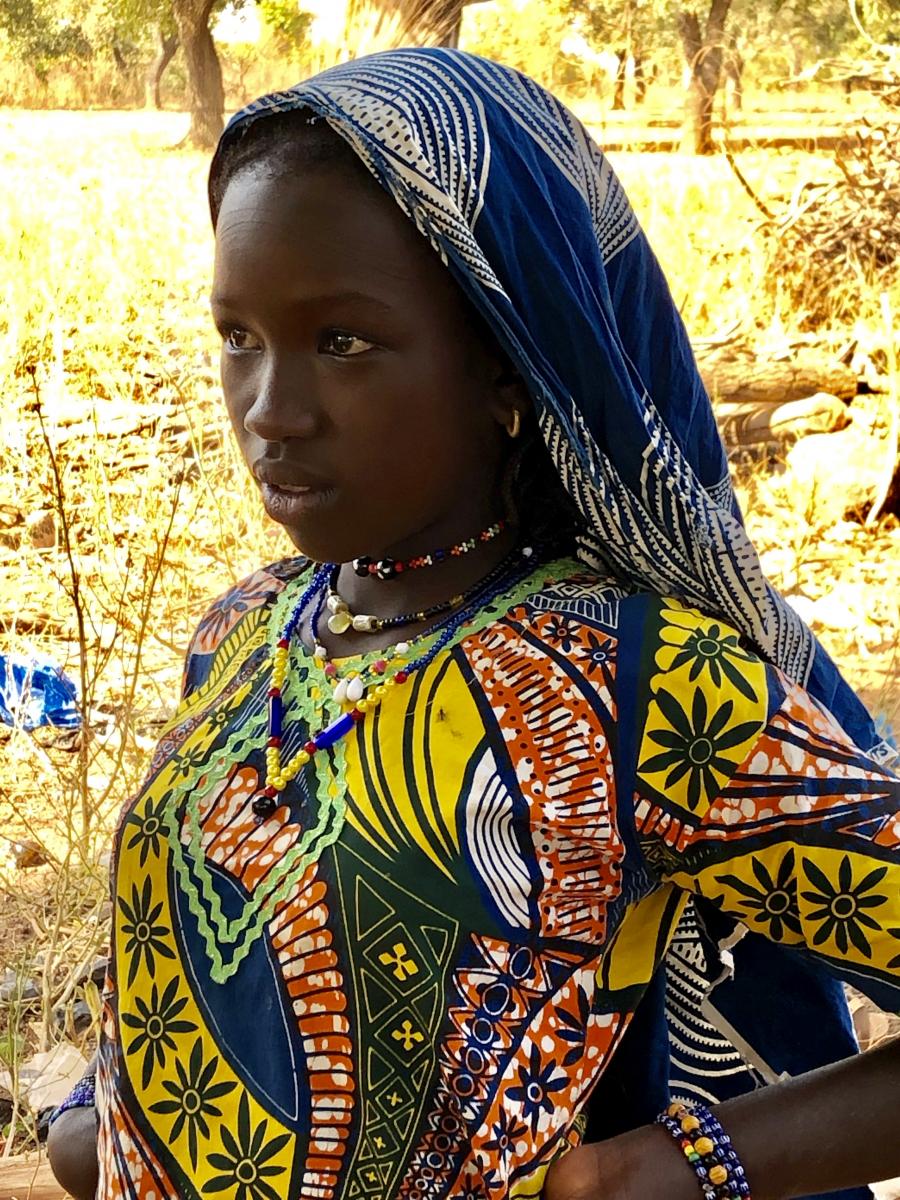
Where the houses are located, it is fine because usually there are tall and leafy trees, on whose branches hang the cobs to dry; while between a group of houses and the other, if there are no trees, it is really hot.
They are not of many words, perhaps they do not speak French very well; thank goodness we have a local guide because otherwise we could not communicate with them.
We visited their homes: every woman has her house where she lives with young children, when they start growing they live in a separate house; the husband instead lives in a house alone, being Muslim they can have up to 4 wives and marriages are combined by parents.
We were pleased to come to visit the Fulani, we spent some pleasant time with them, we took some beautiful photographs, but at some point we have to go, today we still have an appointment: The dance of the Virgins of the Senoufo.
